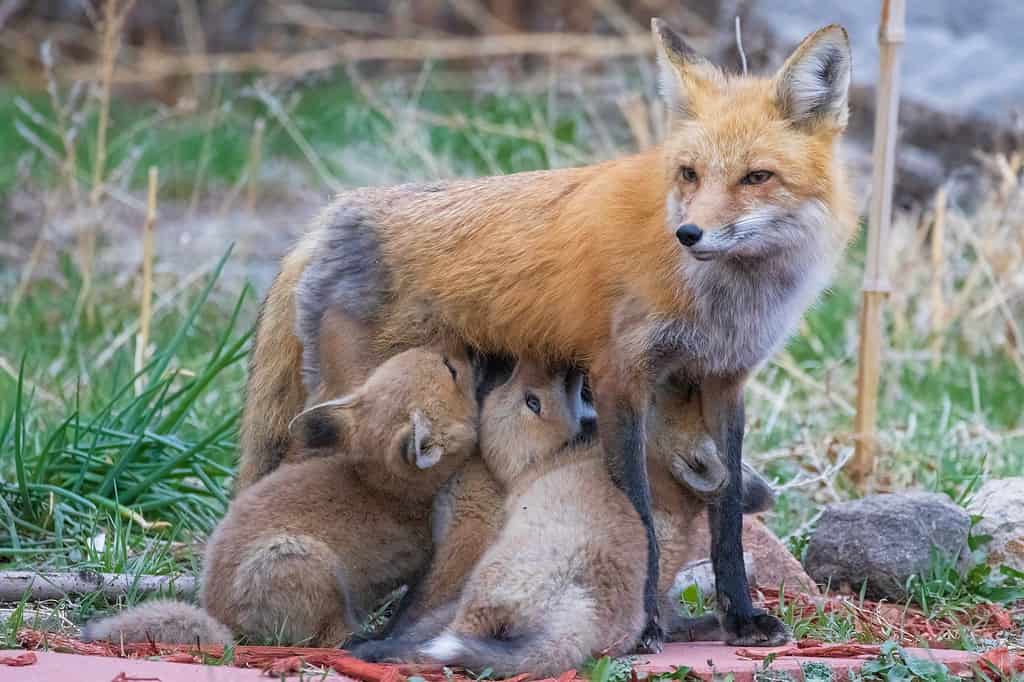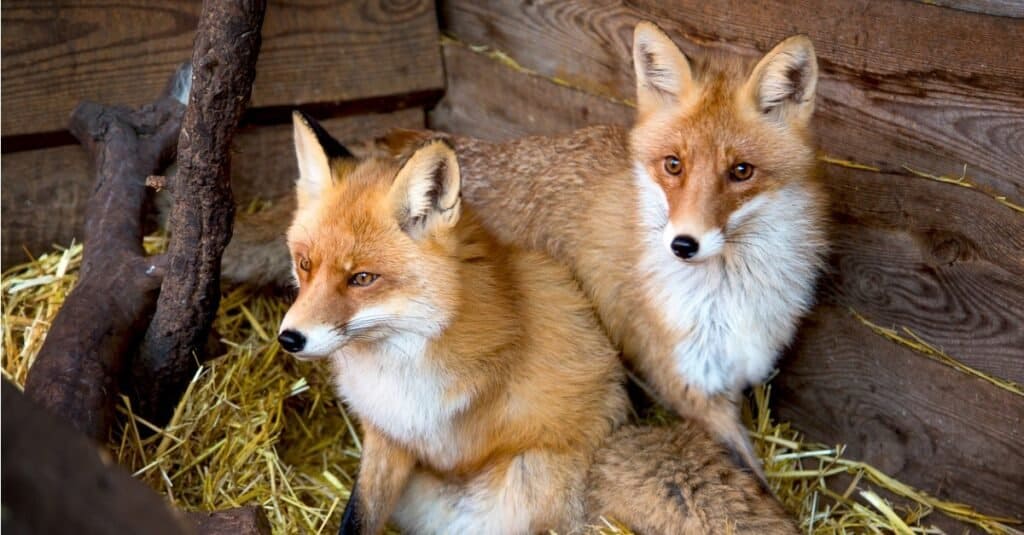In the wild, monogamy can be quite a rarity. We often see animals mate with multiple partners in order to ensure the survival of their genetic information. However, this isn’t always the case. In fact, quite a few animals are monogamous for a variety of different reasons. Let’s discuss whether or not foxes practice monogamy and explore some fun facts about these interesting little creatures.
Are Foxes Monogamous?

Wild foxes typically live to be between three and four years of age, but captive foxes live much longer.
©BlueBarronPhoto/Shutterstock.com
In short, yes, certain species of foxes are considered monogamous. In particular, Arctic foxes, grey foxes, and certain red foxes are thought to engage in this type of behavior. However, these original claims were largely based on observation rather than genetic evidence. As science has progressed, we now know these animals choose mates according to individual circumstances. Things like social hierarchy, access to resources, population size, and the age of the fox are all influential in determining mating behavior.
Why Are Foxes Monogamous?
In most cases, mating with as many suitable candidates as possible is usually the best strategy for passing on genes. Because of this, it might seem odd that foxes mate for life. However, engaging in this behavior has several benefits. For example, having two parents present ensures that offspring thrive. In addition, many foxes have a very short breeding season. Having one mate ensures that copulation will occur during the small, necessary window of time. Finally, foxes are less sexually driven as they get older. Keeping one mate around is more convenient than searching for new mates.
How Fox Monogamy Works

Fox mating can be very loud and alarming.
©iStock.com/Svetlana Belkina
Although fox couples remaining forever loyal is a nice thought, there is rarely a case where foxes are monogamous 100% of the time. If another breeding opportunity presents itself, many foxes will take it. This is why the term “monogamy” should be used loosely, if at all. While many foxes will take on a primary partner, both males and females will take mates outside of that relationship as well. Instead of thinking of foxes as monogamous, try to think of them as having long-term, open relationships. According to Wildlife Online, “Tracking studies in Bristol, for example, have revealed that, after the dominant vixen has ended her oestrus, the male often rapidly expands his range—in many instances more than doubling the distance over which he travels—to increase the likelihood of encountering other receptive vixens.”
Fun Facts About Fox Relationships
- In the event a fox in a partnership dies, the surviving fox will eventually find another mate. (Rumors state that foxes will remain single after the death of a significant other, but there is no evidence for this).
- Male and female foxes usually don’t spend time with one another outside of the breeding season and raising offspring.
- Female red foxes typically give birth to between three and six babies in one litter.
- Young red foxes stay with their parents until they reach around seven months of age.
- Fox mating season usually occurs during the winter.
Final Thoughts
Foxes appear to prefer one mate, copulating with them multiple times. Despite this, they may also engage in relationships outside of their core relationship, depending on circumstances. As science continues to progress, there is no doubt that we will glean even more understanding into fox mating behavior and the structure of their relationships.
The photo featured at the top of this post is © Rejean Aline Bedard/Shutterstock.com
Thank you for reading! Have some feedback for us? Contact the AZ Animals editorial team.






